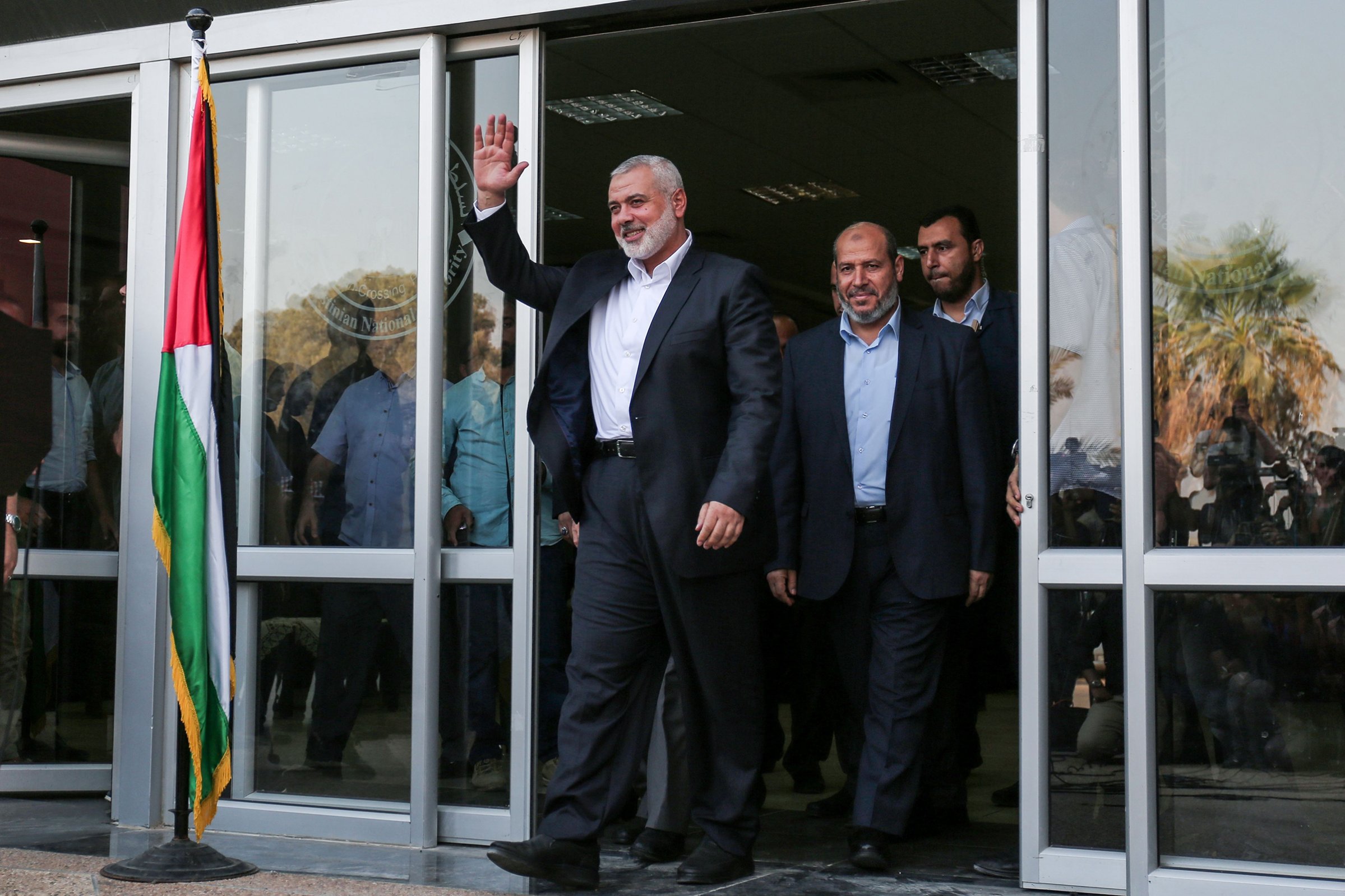
The Islamist group Hamas agreed on Sept. 16 to elections in Gaza and the West Bank, raising the prospect of Palestinian reconciliation after 10 years of squabbling and violence.
COLD WAR
The two Palestinian factions, Hamas and its secular rival Fatah, have been at odds since a 2007 civil war that left the Gaza Strip under Hamas control and the Fatah-led Palestinian Authority overseeing the West Bank. In March, President Mahmoud Abbas accused Hamas of attempting to form a “shadow government” in Gaza by taking over key administrative roles. Abbas cut fuel payments that led to blackouts across the coastal territory.
SMALL CHANGES
Under pressure, Hamas agreed to cede control of certain administrative functions in Gaza and move forward with elections. It’s just the latest evolution toward moderation from the militant group under new leader Ismail Haniyeh. Hamas even released a policy document in May that accepted the idea of a Palestinian state based on pre-1967 borders, though it stopped short of acknowledging Israel’s right to exist.
REALITY CHECK
Few experts believe reconciliation is a realistic prospect; no date has been set for elections, and previous efforts have failed. The Palestinian Authority is also unlikely to drop its objections to Hamas’ military and security forces, or its control of Gaza. But this move might at least convince Abbas to lift sanctions and improve the lives of the 1.8 million Palestinians living in the desolate Gaza Strip.
More Must-Reads from TIME
- L.A. Fires Show Reality of 1.5°C of Warming
- Home Losses From L.A. Fires Hasten ‘An Uninsurable Future’
- The Women Refusing to Participate in Trump’s Economy
- Bad Bunny On Heartbreak and New Album
- How to Dress Warmly for Cold Weather
- We’re Lucky to Have Been Alive in the Age of David Lynch
- The Motivational Trick That Makes You Exercise Harder
- Column: No One Won The War in Gaza
Contact us at [email protected]